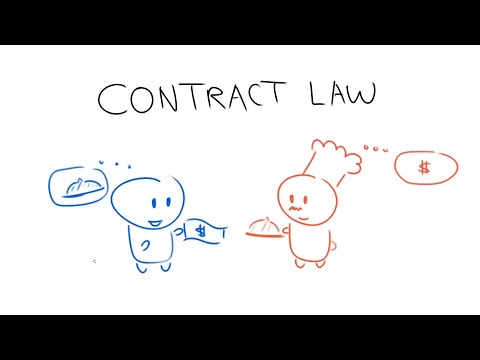
Welcome to this informative article on understanding the concept of unfairness in contracts. It is important to note that while this article aims to provide a comprehensive analysis, it should not be substituted for professional legal advice. Always consult with additional sources or a legal advisor to ensure accuracy and applicability to your specific situation. Now, let’s delve into the fascinating world of contract law and tackle the concept of unfairness head-on.
Understanding Unfairness in Contract Law
Understanding the Concept of Unfairness in Contracts: A Comprehensive Analysis
Contracts are an integral part of our daily lives. Whether it’s a lease agreement, a cell phone contract, or a purchase agreement, we enter into contracts on a regular basis. However, sometimes contracts can be unfair or one-sided, leaving one party at a disadvantage. Understanding the concept of unfairness in contracts is crucial to protecting your rights and ensuring fair treatment.
📋 Content in this article
Unfairness in contract law refers to situations where one party has an unfair advantage over the other, resulting in an imbalance of power or unequal bargaining positions. This can occur in various ways, and it’s important to be aware of these situations to avoid potential pitfalls. Let’s dive into some key points to better understand the concept of unfairness in contracts:
1. Unequal Bargaining Power:
– In some cases, one party may have significantly more bargaining power than the other. This can occur when dealing with large corporations or highly skilled professionals.
– When there is a significant power imbalance, the party with less power may feel compelled to accept unfair terms simply because they have no other viable options.
2. Unconscionable Contracts:
– Unconscionability is a critical concept in contract law. It refers to contracts that are so one-sided or oppressive that they shock the conscience.
– Courts often scrutinize unconscionable contracts and may refuse to enforce them or modify them to make them fairer.
– To determine whether a contract is unconscionable, courts consider factors such as the relative sophistication of the parties, the terms of the contract, and any unconscionable conduct during negotiation.
3. Unfair Contract Terms:
– Certain contract terms may be inherently unfair. These terms may include excessive penalties, harsh limitations on liability, or provisions that give one party unilateral control over important decisions.
Understanding the Three-Part Test for Unfairness in US Law
Understanding the Concept of Unfairness in Contracts: A Comprehensive Analysis
Contracts are an essential part of our daily lives, whether we realize it or not. From purchasing a car to signing a lease agreement, we enter into contracts regularly. However, it is crucial to understand the concept of unfairness in contracts and how it is evaluated under US law.
To determine whether a contract is unfair, US law uses a three-part test. This test helps assess the overall fairness of a contract and ensures that both parties are treated justly. Let’s take a closer look at each part of this test.
1. Substantive Unfairness:
Substantive unfairness focuses on the content of the contract itself. It examines whether the terms and conditions of the contract are inherently unfair or oppressive to one party. This assessment considers various factors such as:
If a court determines that a contract is substantively unfair, it may refuse to enforce the unfair provisions or declare the entire contract void.
2. Procedural Unfairness:
Procedural unfairness focuses on the process through which the contract was formed. It examines whether there was any unfairness in the negotiation or execution of the contract. Some key factors considered in procedural fairness include:
Title: Understanding the Concept of Unfairness in Contracts: A Comprehensive Analysis
Introduction:
Contracts are fundamental to the functioning of our legal system, serving as the building blocks of commercial and personal relationships. However, it is crucial to comprehend the concept of unfairness in contracts to ensure fairness and justice in our legal agreements. This article aims to provide a comprehensive analysis of this concept, shedding light on its significance in today’s legal landscape. Readers are advised to verify and cross-reference the information presented here as laws and interpretations may vary.
Understanding Unfairness in Contracts:
Unfairness in contracts refers to the presence of terms or clauses that are deemed unjust, one-sided, or oppressive to one party involved. The legal system recognizes that parties entering into agreements should be on equal footing and have the freedom to negotiate terms that are fair and reasonable. When a contract is found to be unfair, the affected party may seek legal remedies to rectify the situation.
Determining Unfairness:
Determining whether a contract is unfair involves a careful examination of various factors, including:
1. Imbalance of Bargaining Power: Courts consider the relative bargaining power of each party. If one party has significantly greater power, such as a dominant market position or expertise, and exploits it to impose unfair terms, it can be deemed unfair.
2. Unconscionability: Unconscionability refers to contract terms that are so one-sided and oppressive that they shock the conscience. This often involves situations where one party takes advantage of the other’s vulnerability, ignorance, or inability to fully understand the terms.
3. Public Policy Considerations: Contracts that violate public policy, such as those promoting illegal activities or undermining public welfare, can be deemed unfair and unenforceable.
4. Standard Industry Practices: Industry-specific standards and customs can play a role in determining unfairness. If a contract deviates significantly from accepted practices within an industry, it may be deemed unfair.
